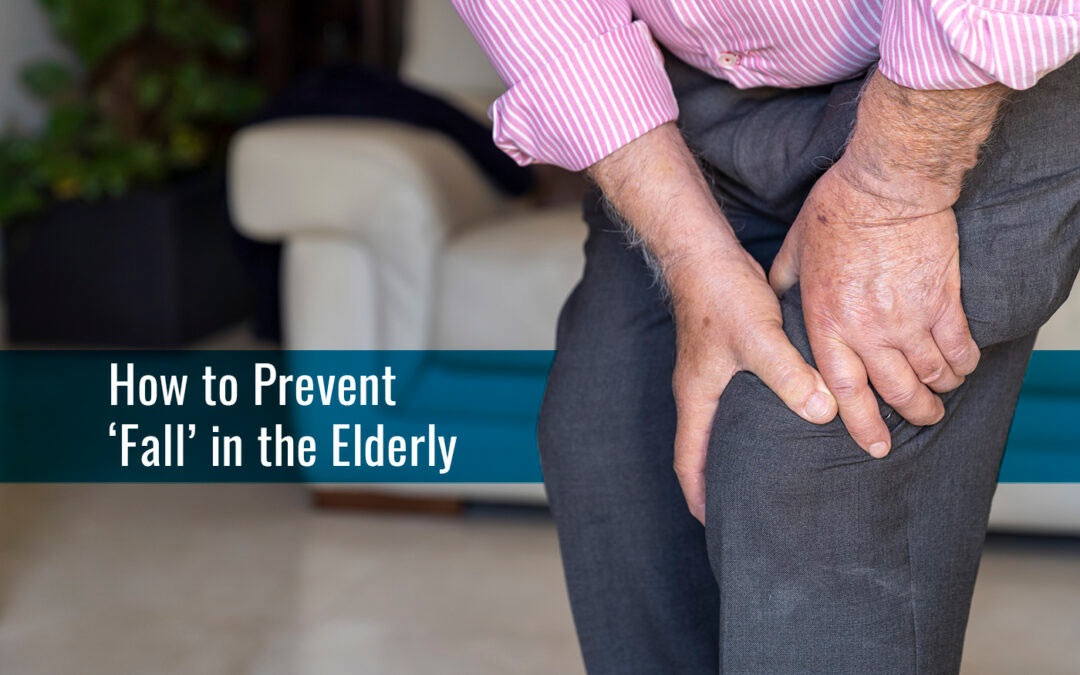India being the second most populated country, over 10% of the population constitutes senior citizens over 60. The elderly in our country face many problems owing to the changing economic and cultural environment. One of the major concerns amongst seniors is their health.
Fall is a leading cause of concern in the Elderly. Fall creates a sense of fear and panic, making it difficult for them to move around and do routine tasks, making them fearful and depressed. Fall may result in bone fractures and other injuries. Frequent falls or even a one-time fall can lead to severe complications, making it difficult for them to stay active and independent.
Here are some ways to prevent the fall of the ageing senior members in your family and help them live happily and independently.
Regular Medical Check-ups:
Fall is often unintentional and not in the control of our elders, which may indicate declining health. Poor vision, imbalance, vertigo, hearing impairment, osteoarthritis, depression, dementia are other significant causes of fall-based injuries. Regular Medical check-ups help identify the underlying cause(s) of falls and prevent further falls from occurring.
Modify Living Spaces:
The living spaces of the elderly are a significant cause of falls, and most falls occur later part of the day, especially when they wake up in the middle of the night for using the washroom. You can make their living spaces risk free by eliminating unnecessary items on pathways, avoiding risky footwear, and providing safe and well-lit staircases. Improve the lighting in the living space for them to see paths and things better.
Encourage Physical Activity:
After the first fall, there might be a sense of fear that might stop your elderly from their routine tasks or even walking. Consult your doctor, and on their recommendation, you can encourage daily physical activity like walking and exercises to improve balance and flexibility. You can even consult physical therapists who will customise workout plans for their physical well-being.
Talk to them:
Don’t stop them from speaking about their past falls; it may be good to understand their fears. You can understand and how the fall has impacted their daily life. If they fear falling, encourage them to discuss it with you and your doctor so that you may take necessary to prevent falls in the future.
Chronic Medical Conditions:
Some senior citizens suffer from chronic medical conditions like diabetes, hypertension, arthritis, stroke. These often lead to higher probabilities of falling in the elderly. A person with diabetes has more chances of falling due to hyperglycemia (high blood sugar) than someone who does not. So, ensure medical attention is provided regularly to keep their health in check and prevent falls.
Follow these simple ways to prevent falls, break the elders’ fall cycle, and help them live safely and independently without fear.
Dr Reema, COO of KITES SENIOR CARE, Bengaluru, opines with her experience in Geriatric Care that falls are a significant public health problem the world over, making it the second leading cause of unintentional injury death, after road traffic injuries.
Certain facts make it a priority to work towards the prevention of Falls. According to WHO, 28% to 30% of elders above 65 years have a fall each year. The effect of the fall ranges from mild to severe injuries and sometimes death.
As per CDC (Centres for Disease Control & Prevention):
• 1 out of 5 falls cause a serious injury such as broken bones or a head injury.
• 3 million older people are treated in emergency departments for fall injuries each year the world over.
• Approximately 3 Lakh elders are hospitalized because of injuries caused by falls, most commonly being head injury & hip fractures.
• Approximately 95% of hip fractures are caused by falling.
• Falls is the most common cause of Traumatic Brain Injury.
• Approximately 50 – 790 billion dollars are spent on treating fatal/ non-fatal injuries caused due to falls.
Various causes lead to falls, ranging from ill-fitting clothes or shoes to inappropriate flooring in the house/ bathrooms, houses cluttered with furniture, and the absence of sturdy handrails. At times, it is also the reluctance of elders to use supportive devices like walking canes or walkers, or medical conditions like vertigo/hypo or hypertension, knee pain, chronic conditions like diabetes causing neuropathies, weak vision, side effects of certain medications, to name a few.
The numbers are alarming and the financial burden high, which coerces us to pay attention to the prevention of falls – an easily preventable condition. We can identify and treat the cause/s that may lead to injuries that can be fatal.

